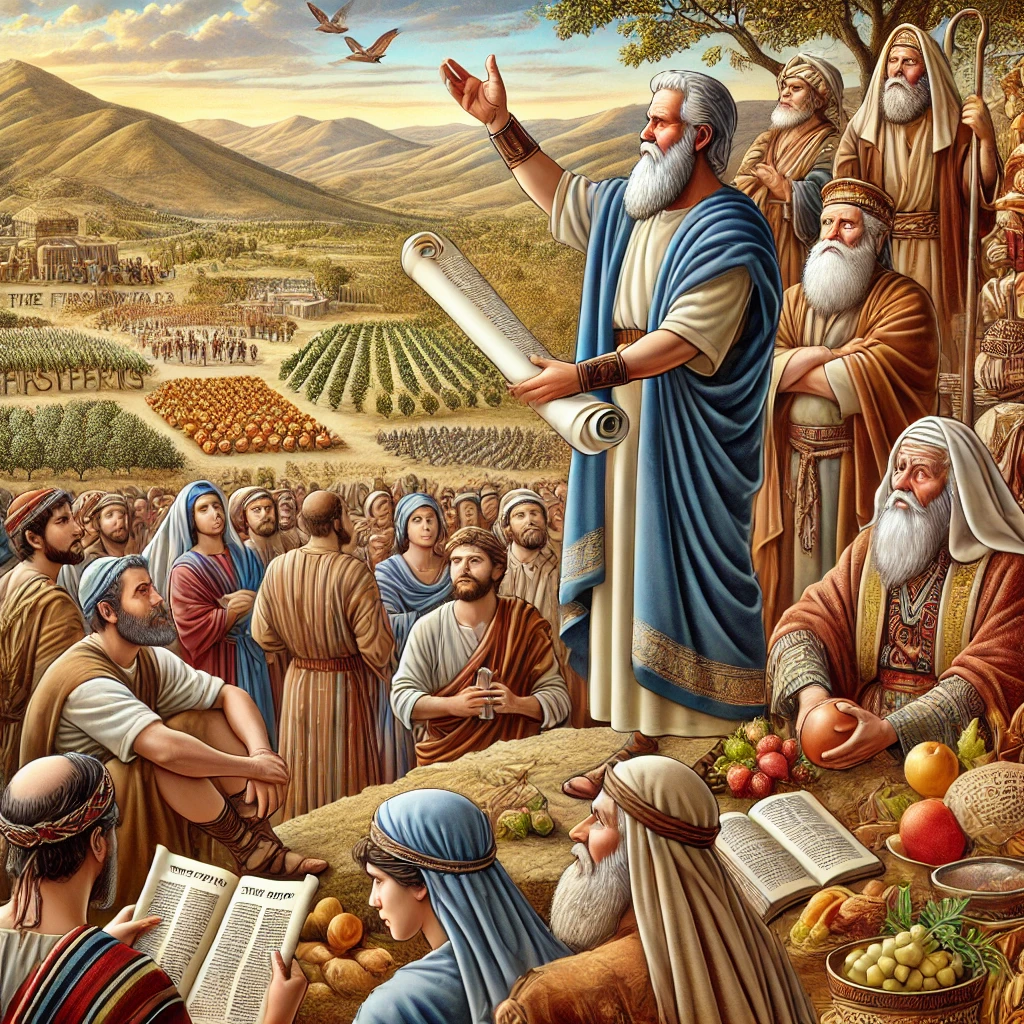Deuteronomy 26 is a chapter that outlines the laws regarding the offering of firstfruits and tithes. Moses provides detailed instructions on how the Israelites should present these offerings to express gratitude and worship towards God, ensuring that they remember His blessings and maintain their covenant relationship with Him.
The Context of Deuteronomy 26.
In Deuteronomy 26, Moses addresses the Israelites, giving them specific guidelines for presenting the firstfruits of their harvest and the tithes of their produce. These offerings are acts of worship and gratitude, acknowledging God’s provision and blessings. The chapter emphasizes the importance of remembering God’s faithfulness and expressing gratitude through tangible acts of obedience.
Key themes in Deuteronomy 26
- Offering of firstfruits: Moses instructs the Israelites to bring the firstfruits of their harvest to the priest and make a declaration of God’s faithfulness. This offering symbolizes gratitude for God’s provision and blessings.
- Presentation of tithes: The chapter includes guidelines for presenting tithes every three years. The Israelites are to declare that they have fully complied with God’s commandments regarding tithes, ensuring that the Levites, foreigners, orphans, and widows are provided for.
- Expression of gratitude: The offerings of firstfruits and tithes are expressions of gratitude towards God. They remind the Israelites of their dependence on God’s provision and their responsibility to honor Him with their resources.
- Covenant relationship: The chapter reinforces the covenant relationship between God and the Israelites. By obeying these laws, the Israelites demonstrate their commitment to God’s commandments and their desire to maintain a faithful relationship with Him.
Lessons from Deuteronomy 26.
- Gratitude for God’s provision: Offering firstfruits and tithes teaches us the importance of gratitude. Acknowledging God’s provision and blessings through tangible acts of worship strengthens our faith and dependence on Him.
- Worship through obedience: Presenting offerings as instructed by God is an act of worship. Obedience to God’s commandments in giving shows our reverence and commitment to Him.
- Support for the community: The laws about tithes emphasize the importance of supporting the community, especially the vulnerable. Providing for the Levites, foreigners, orphans, and widows ensures that the community thrives together.
- Maintaining the covenant: Obeying these laws reinforces the covenant relationship with God. By following His commandments, we show our dedication to maintaining a faithful and obedient relationship with Him.
Conclusion
Deuteronomy 26 provides essential guidelines for offering firstfruits and tithes, emphasizing gratitude, worship, and obedience. As we reflect on this chapter, we are reminded of the importance of acknowledging God’s provision, worshipping through obedience, supporting our community, and maintaining our covenant relationship with God. By following these principles, we can live a life that honors God and reflects His blessings.






